This project aims to introduce and test electric bikes and electric motorcycles as mobility options for short and medium distances in the Andean highlands of Argentina.
This project tested the potential for solar-powered electric bikes to meet the demand for mobility in two areas of north-western Argentina: the Puna region (Andean highlands, 3,700 metres above sea-level) and San Salvador, the capital of the province of Jujuy. Mobility in this region is limited due to inadequate public transport, fuel shortages and high fuel costs. In addition, remote villages suffer from a deficient road network and it takes a long time to travel even short distances, resulting in high costs for local communities.
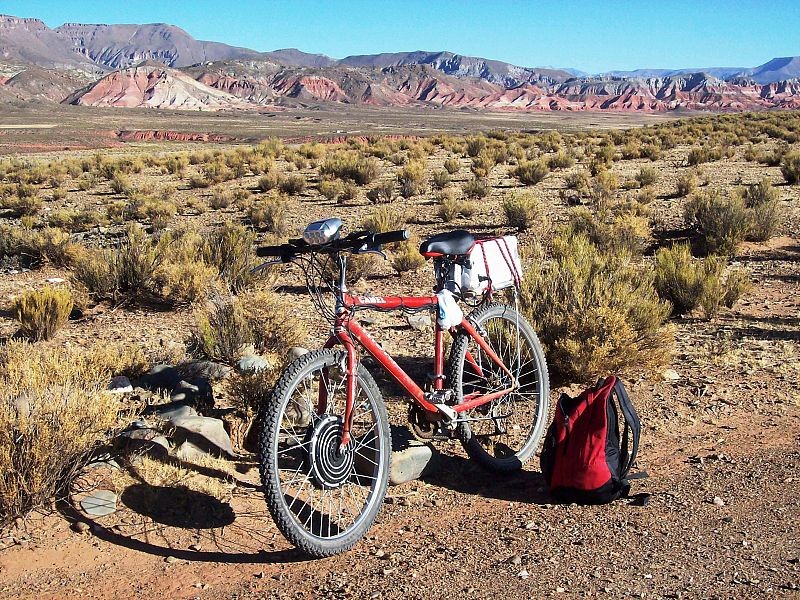
As part of this project, 15 e-bikes were introduced to the participating communities and tested by the local population for short and medium distances. The energy for recharging the e-bikes’ batteries was provided by six mobile solar PV power stations. Due to import limitations, the e-bikes used were locally-adapted existing bikes rather than ready-made e-bikes.
The implementing organisation, Fundación EcoAndina, has over 20 years of experience in introducing solar power concepts to the region, having supported over a dozen Puna communities via its Andean Solar Villages initiative. The present project extends the Andean Solar Village concept to solar mobility.
Technology, Operations & Maintenance
In a first step, EcoAndina technicians developed a prototype series of e-bikes based on adapted second-hand mountain bikes with 350W electric motors and lead-acid batteries. In field tests, these e-bikes demonstrated frequent faults and it was agreed that a new batch of prototypes would be developed, this time with 500W motors, lighter lithium batteries and newly bought specially designed bike frames.
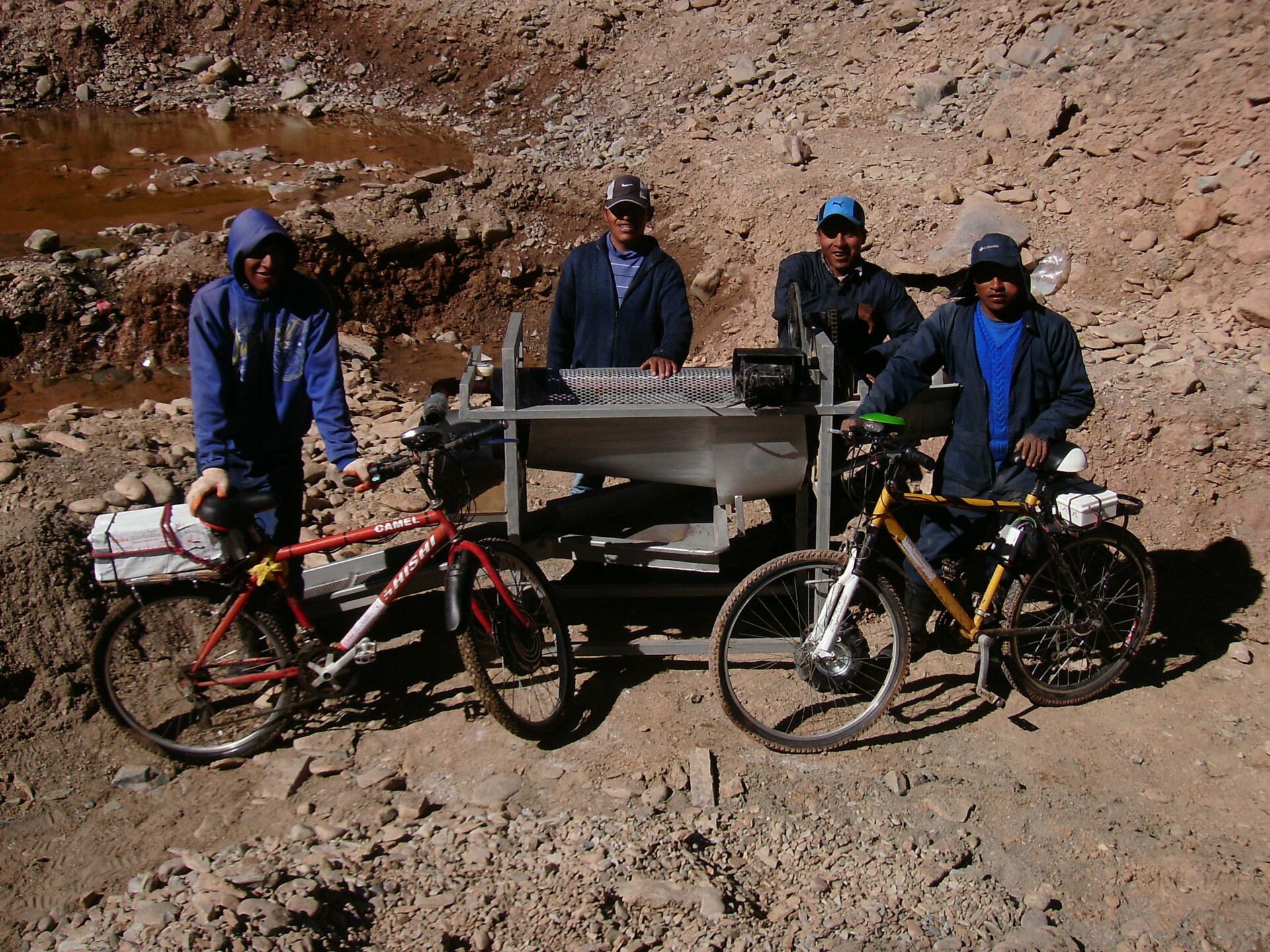
A total of 15 of these sturdier e-bikes were assembled and tested by staff to ensure they were suitable for use in rural areas and were easy to maintain. The e-bikes were then handed over to various organisations in three different areas of the province of Jujuy: 8 e-bikes were used in the Puna area by local indigenous people in the villages of Misa Rumi, Paicone and Cienega. One e-bike was used by the traffic police department in the town of Humahuaca. Six e-bikes were in use in the urban area of the capital of the province, San Salvador, and its surroundings.
Mobility needs were evaluated prior to the design phase. The final e-bike prototype can cover 30 km before it requires recharging, which is the maximum daily distance that inhabitants in the rural Puna area need to cover to carry out economic activities such as farming, construction and gold-panning.
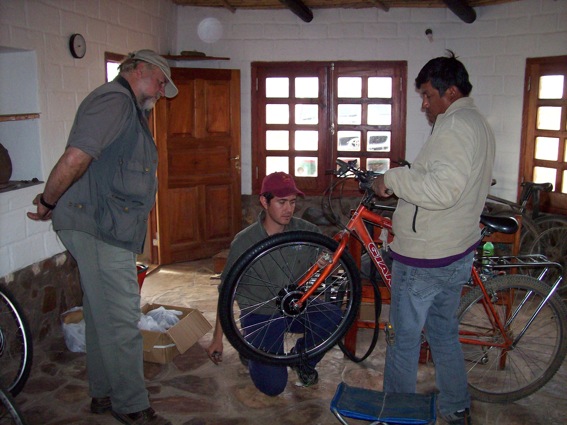
Five German-manufactured mobile solar battery charging stations were installed in accessible locations, each one consisting of a regulation unit connected to a 65 Watt PV panel. A further charging station was developed in-house, using locally available components.
The technological improvements continued during the project. The experiences in the field were shared with electrical engineers, e-bike providers in Buenos Aires and local bicycle shops. As a result, the quality of the components and overall performance was improved and a near-commercial product is now available.
Delivery Model & Financial Management
In this prototype development and testing project, the e-bikes were lent to the users at no cost. Despite the potential fast pay-back period of e-bikes, their high initial investment costs (equivalent to four times the monthly minimum wage) make them unaffordable for rural communities. Lowering the costs via large-scale production, or facilitating access to micro-credits, are some of the future options that EcoAndina is currently investigating.
In order to ensure the long-term sustainability of the project, a stock of spare parts was amassed and five men from the participating communities were trained in e-bike operation and maintenance. Over the course of the project, one of these trainees emerged as a committed technician and he will be employed in the follow-up project.
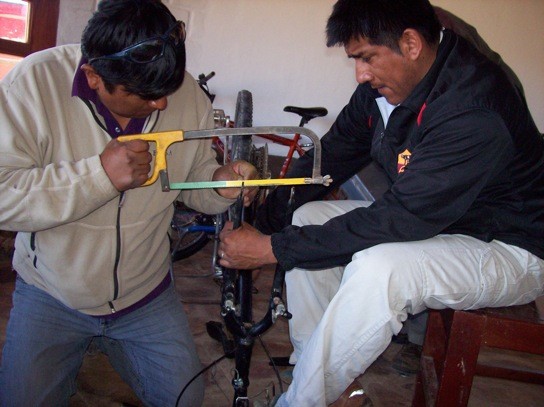
Environmental Issues
Solar mobility is a step on the pathway to replacing the use of fossil fuels in the Puna region. Due to the area’s abundant solar energy and lithium resources, EcoAndina is particularly interested in combining solar mobility and other solar energy concepts with the development of the local lithium extraction and processing industry, which is still in its infancy in the province of Jujuy. Poised to be the future of energy storage for small-scale renewable systems, lithium batteries offer better performance and have much lower environmental costs than traditional lead-acid batteries.
Social Issues
E-mobility has the potential for improving living conditions in the Andean highlands, where families’ standards of living are considerably lower than the Argentinian average.
The e-bikes were very well received by users and there were a broad range of user types. However, a marked gender bias was also observed: men were far more likely than women to ride unaccompanied on the e-bikes. EcoAndina aims to work on this aspect in the follow-up to the project by using bike frames of different sizes and by targeting their communication to girls and women.
Results & Impact
The major impact of this project was the breakthrough in introducing an innovative technology into a challenging environment. On this basis, a local entrepreneur, in cooperation with EcoAndina, has applied for finance to support the commercial production of e-bikes. EcoAndina itself is planning follow-up projects with the aim of improving the performance of the e-bikes and lowering their cost. The current price is likely to be too high for the indigenous population, who tend to have low incomes.
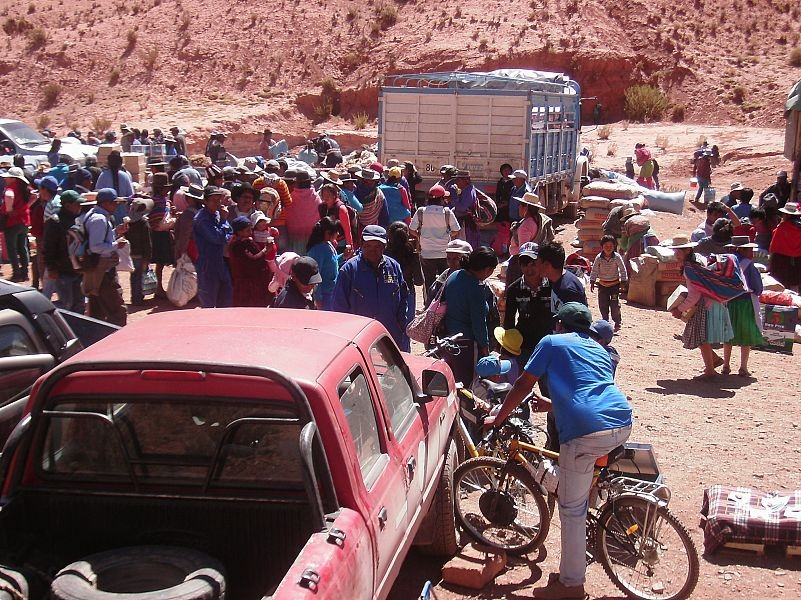
Replicability
The project team recognises great potential for solar mobility in Argentina in general and, in particular, in the Andean area. Moreover, a vision has been brought forward for pairing the development of the solar industry with the lithium extraction industry in the Puna region.
The project attempted to disseminate the benefits of solar-powered e-mobility options in the target region. Most of the dissemination was done by the users themselves, who acted as “multiplicators”. Furthermore, regional and national radio and TV broadcast the project, and active dissemination events took place in the province of Jujuy, at national level and at the 2015 Argentina-Bolivia border fair, where the solar mobility concept reached communities in the neighbouring country. All in all, the e-bikes were demonstrated to over 500 people and a hundred of these, including a number of decision-makers (e.g. local mayors and members of parliament), experienced an e-bike ride.
If in future the market opens up, the competition between locally produced e-bikes and low-cost imported e-bikes might become a challenge for the newly developed product.
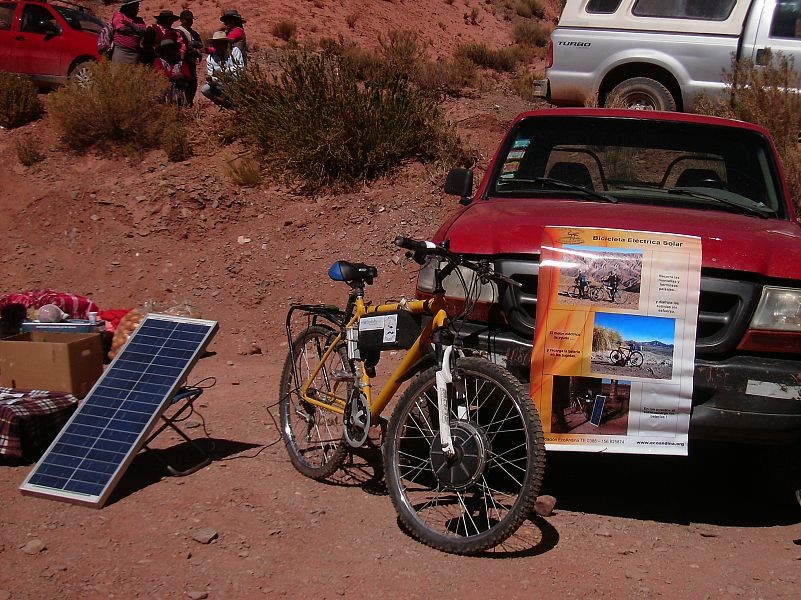
Lessons Learned
Valuable lessons can be taken from this project for use in similar initiatives. For example, trial and error showed that it was more expensive to adapt second-hand bikes than to work with newly-bought components. It also became clear that substantial research, development and demonstration efforts are required to adapt e-bike technology to new areas, particularly if the e-bikes are to be used in harsh conditions and terrain, such as the high mountain tracks in the Andes, and if locally available components are to be used.
A key success factor in this project was the fact that it engaged villagers in the Puna region who were already familiar with EcoAndina and their Andean Solar Villages concept. The availability of existing knowledge and infrastructure to maintain and run the solar recharging stations was also key in introducing the solar mobility concept into the rural context.
Projects with same technology
Community Managed Energy Service for Vegetable Market Chain
This project aims to demonstrate the viability of a community managed irrigation system in rural Nepal, using a photovoltaic pumping system to increase production levels and also enhance the quality of the vegetables produced.
Solar Home System Repair Empowering Village Franchisees
To restore and expand solar energy access to homes in rural Thailand
Projects in same country
Exchange: Jujuy On The Path To Green Energy
This exchange activity aims to transmit twenty years of practical experience in the field of solar energy to an upcoming generation of renewable energy technicians in Jujuy, Argentina.